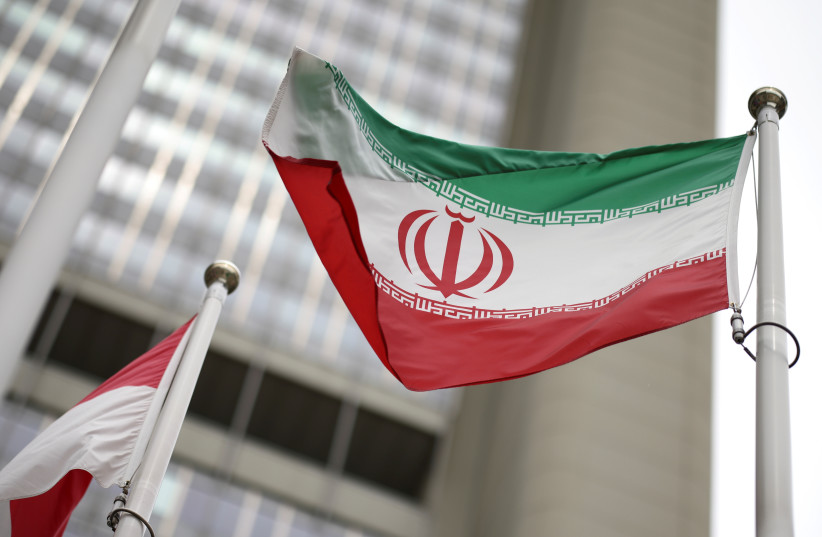Azerbaijan summoned Iran’s Ambassador Abbas Mousavi on April 6 to the Ministry of Foreign Affairs amid rising tensions between Azerbaijan and Iran.
Baku then communicated “strong dissatisfaction was expressed to the Iranian Ambassador due to the recent provocative actions demonstrated by his country in relation to Azerbaijan.”
Baku then noted that “it was brought to the attention of the Iranian ambassador that 4 employees of the Iranian Embassy were declared persona-non-grata by the Azerbaijani government due to their activities that incompatible with diplomatic status and contradict the 1961 Vienna Convention on Diplomatic Relations, and those persons were demanded to leave the territory of Azerbaijan within 48 hours.”
This is a serious incident and it is part of a growing series of incidents and tensions between Azerbaijan and Iran. Baku has also said it arrested six people who it claims were recruited by Iran to “destabilize the situation in the country.”
Iran-Azerbaijan tensions see both sides up rhetoric, summon ambassadors
Iran appears to be ready to reciprocate and also summon the Azerbaijan ambassador to Tehran. At the same time, Iran is upping the rhetoric against Baku.

Iran’s state media IRNA noted that on April 5 “some 210 Iranian parliament lawmakers in a statement have condemned the opening of the embassy of Azerbaijan in the occupied Palestinian territories as well as the appointment of the Azerbaijani envoy in the region while urging the Iranian foreign ministry to take action in this regard.”
Iran’s lawmakers, clearly at the behest of the regime, say that “Azerbaijani officials’ move will bring about various negative political consequences and the Muslims will consider them as accomplices of the Zionist regime in their crimes against the oppressed Palestinians.”
At the same time, Iran has mobilized proxies such as Palestinian Islamic Jihad to slam Azerbaijan. An article at Fars News noted that the Palestinian terror group had put out a statement against Baku in recent days.
In another incident on March 29, Azerbaijan's State Security Service (DTX) said that lawmaker Fazil Mustafa was hospitalized with gunshot wounds to his shoulder and leg. The report called this a “terrorist act.” Radio Free Europe noted that “investigations into the attack are under way, DTX said. Mustafa is a sharp critic of neighboring Iran's policies toward Azerbaijan.” This attack appears to have helped lead to the current crisis.
A report at Asharq al-Awsat on April 1 noted that “the Iranian Foreign Ministry condemned Israeli Foreign Minister Eli Cohen's statements regarding the agreement with his Azerbaijani counterpart on ‘forming a united front’ against Tehran.”
Iranian Al-Alam TV quoted Foreign Ministry spokesman Nasser Kanaani as saying that Tehran sees the statements of the Israeli and Azeri foreign ministers as an "implicit affirmation of cooperation between the two anti-Iran sides," the report said.
“Kanani said that these remarks show ‘sinister intentions’ of Israel to turn the territory of Azerbaijan ‘into a national security threat’ for Iran, the report said.” “Azerbaijan quickly responded to the Iranian threats, saying Tehran would ‘never intimidate’ Baku, according to a statement by the [Azerbaijan] Foreign Ministry.” IRGC-linked channels on Telegram were then reported to be increasing their threatening language against Azerbaijan.
The tensions between Baku and Tehran have grown over the last few years. Iran has slammed Azerbaijan for ties with Israel but has also been concerned because of Azerbaijan-Armenia tensions. Iran tends to support Armenia and does not want to see a conflict on its northern border.
In addition, Iran is concerned that Azeri minorities in Iran will be influenced by any kind of conflict across the border.
Iran enjoys warm ties with Russia and both Russia and Iran have good relations with Turkey. Turkey is a key ally of Azerbaijan. However, Iran has always been concerned and wary about Baku’s growing wealth and power and influence in the region.
